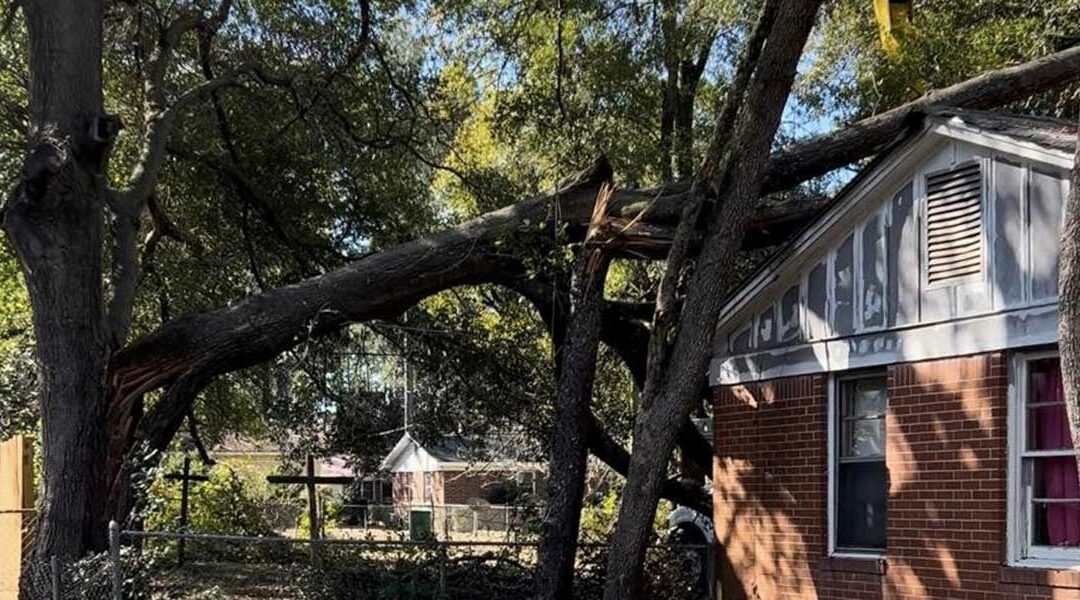Most trees can ride out bad weather without much fuss, taking wind, rain, and even a blast of ice in stride. But then there’s that one wild night when a tree suddenly gives way and crashes down.
Sometimes the cause is plain: brutal winds, heavy ice, or snow snapping branches. Other times, the real troublemaker is less obvious, like soaked soil from days of rain.
In this post, Green Acres Tree Service, your go-to tree services in Warwick, GA, answers, “Why do trees fall over in a storm?” You might be surprised to learn that there are a few possible reasons, many of which you can’t see.
Saturated Soil
Too much water can be just as bad as too little. Soggy soil ranks as one of the main reasons that trees fall. Their trees can’t maintain their grip because the ground is too soft, and the tree can start to topple.
Root Damage
Lots of water that doesn’t drain away is bad news. It can rot the roots, meaning that they die off and the tree can’t stay upright. If there’s damage to more than a third of the rootball for any reason, the same applies.
High Winds
Sometimes Mother Nature unleashes her full fury. There’s not much you can do about these except for planting storm-resistant trees.
Poor Tree Health and Structural Weakness
Most healthy trees can withstand storms, but any type of illness or damage reduces their chances. Any imbalance in the canopy puts the trunk at risk of toppling.
Soil Erosion
If there’s not enough ground for the roots to grip, the tree can fall. That’s why it’s so important to deal with erosion quickly.
Warning Signs To Watch For
Now we can answer, “Why do trees fall over in a storm?” Let’s review when you need to worry:
- Leaves yellowing, drooping, or shrinking
- Bare or thinning spots in the canopy
- Soil lifting, cracking, or revealing roots
- A lean that’s gotten worse
- Roots that are soft, black, or mushy
- Fungi growing at the base or on the trunk
Any of these signs means the roots might be losing their hold.
Helping Trees Survive Soggy Ground
You can’t turn off the rain, but you can give the soil a fighting chance. Mixing compost into clay loosens it up so water drains better. In sandy soil, compost helps it hang on to moisture and nutrients longer. Working in a couple of inches per foot of depth can make a real difference.
If drainage is your main enemy, there are fixes. French drains, vertical mulching, rain gardens, or bioswales can all help pull excess water away from the root zone. In some spots, it might make sense to plant species that naturally thrive in wetter conditions.
Protect Your Trees Before the Next Storm
Why do trees fall over in a storm? It isn’t always what you see; it’s often what’s happening underground. If you’re concerned, call Green Acres Tree Service at 229-881-2538 for expert advice or to discuss removing trees that have lost their structural integrity.


